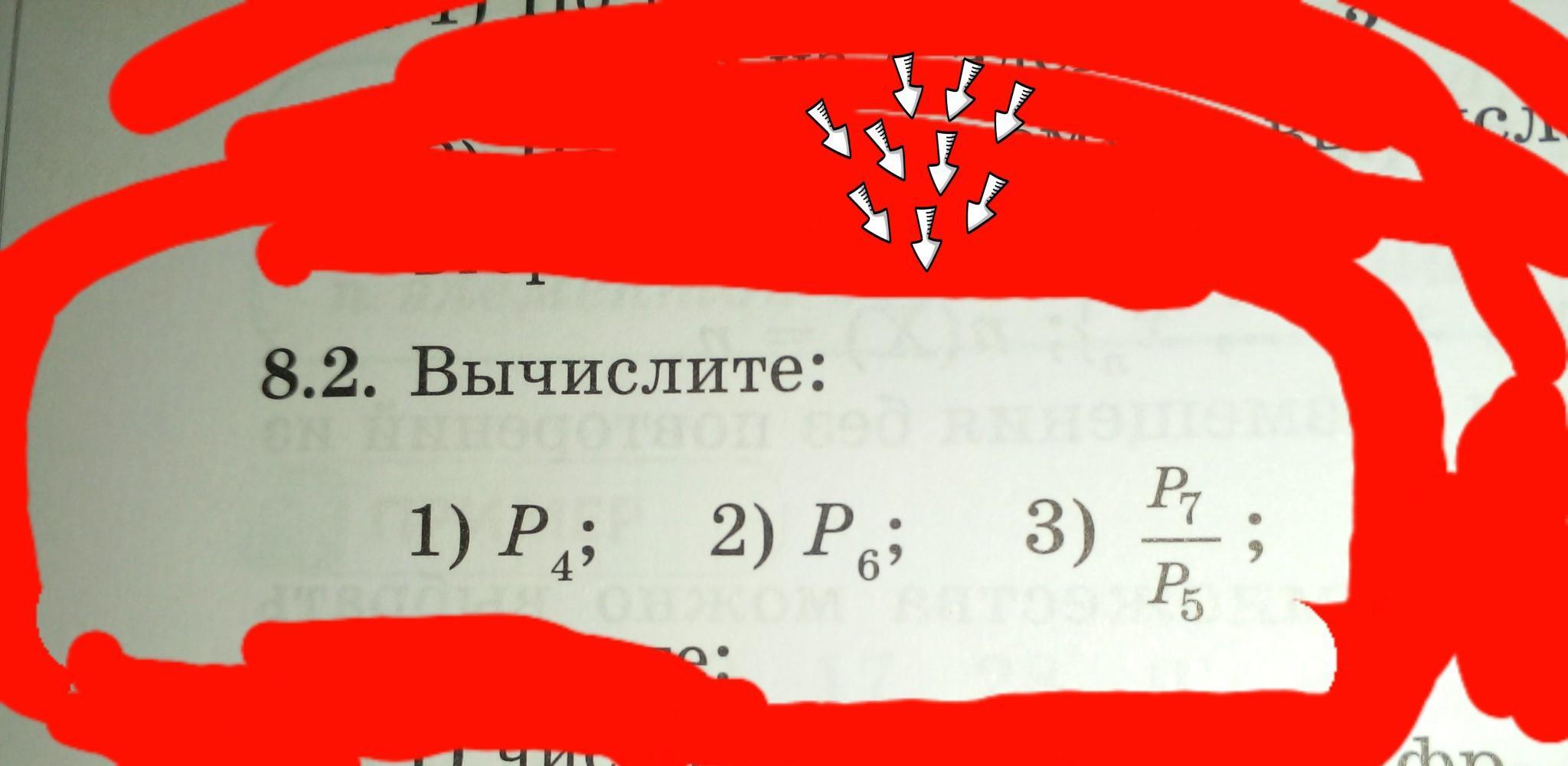помогите пожалуйста дом30 БАЛОВ ТОКО сразу плис ?????

Ответы
Ответ:
Формула числа перестановок без повторений из n элементов:
P_n=n!=1\cdot 2\cdot 3\cdot ...\cdot nP
n
=n!=1⋅2⋅3⋅...⋅n
=======================================
\begin{gathered}1) ~P_4=4!=1\cdot2\cdot3\cdot4=24\\\\2)~P_6=6!=1\cdot2\cdot3\cdot4\cdot5\cdot6=720\\\\3)~\dfrac{P_7}{P_5}=\dfrac{7!}{5!}=\dfrac{5!\cdot6\cdot7}{5!}=6\cdot7=42\\\\4)~\dfrac{P_6}{P_8}=\dfrac{6!}{8!}=\dfrac{6!}{6!\cdot7\cdot8}=\dfrac1{7\cdot 8}=\dfrac1{56}\\\\5)~\dfrac{P_8}{P_7}+\dfrac{P_5}{P_6}=\dfrac{8!}{7!}+\dfrac{5!}{6!}=\dfrac{7!\cdot8}{7!}+\dfrac{5!}{5!\cdot6}=8\dfrac16\\\\6)~\dfrac{P_9}{P_7}-\dfrac{P_7}{P_5}=\dfrac{9!}{7!}+\dfrac{7!}{5!}=\dfrac{7!\cdot8\cdot9}{7!}-\dfrac{5!\cdot6\cdot7}{5!}=72-42=30\end{gathered}
1) P
4
=4!=1⋅2⋅3⋅4=24
2) P
6
=6!=1⋅2⋅3⋅4⋅5⋅6=720
3)
P
5
P
7
=
5!
7!
=
5!
5!⋅6⋅7
=6⋅7=42
4)
P
8
P
6
=
8!
6!
=
6!⋅7⋅8
6!
=
7⋅8
1
=
56
1
5)
P
7
P
8
+
P
6
P
5
=
7!
8!
+
6!
5!
=
7!
7!⋅8
+
5!⋅6
5!
=8
6
1
6)
P
7
P
9
−
P
5
P
7
=
7!
9!
+
5!
7!
=
7!
7!⋅8⋅9
−
5!
5!⋅6⋅7
=72−42=30
Ответ:
1) P4=4! = 1 2 3 4=24
2) P6=6! = 1 2 3 4 5 6=720
3)P7/P5=7!/5! = 5! 6 7/5! =6 7 = 42
Объяснение:
В место пропусков умножение